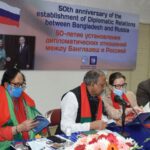Namibia, in collaboration with the Ministry of Information and Communication Technology and the Internet Society Namibia Chapter, launched the Namibian assessment of Internet Universality (IUI) ROAM-X Indicators in Windhoek on 27 June 2023. This event marked Namibia as the pioneering country in southern Africa and the fifteenth country in the continent to conduct the IUI ROAM-X assessment, highlighting its commitment to advancing Internet Universality.
The voluntary assessment aims to develop a clear understanding of the national Internet environment and formulate tailored policy recommendations to shape human-centred Internet in Namibia. The study is based on UNESCO’S ROAM-X principles, promoting an Internet based on human rights (R), openness (O), accessibility (A) and multistakeholder participation (M). The “X” represents crosscutting issues, such as gender, children, and sustainable development.
Namibia’s participation in the ROAM-X assessment strengthens its technology policy development, following the implementation of the national cybersecurity strategy and the drafting of laws related to cybercrime and data protection. The initiative seeks to promote a more inclusive and human rights-based Internet.
The launch event brough together stakeholders from diverse sectors, including government officials, Members of Parliament, researchers, and UNESCO representatives. Emma Theofelus, Deputy Minister of Information and Communication Technology of Namibia emphasized the pivotal role of the ROAM-X framework in her keynote address. She highlighted that the ROAM-X assessment, when completed later this year, will produce a concrete analysis of the Internet Universality concept at the country level. The purpose of this framework of Internet Universality Indicators is to assist governments and stakeholders in formulating evidence-based policies for their national Internet environments.
Deputy Minister Theofelus also acknowledged that the voluntary assessment would provide evidence for the national development of the Internet systems, focusing on human rights, openness, accessibility and the role and governance of multiple stakeholders. Furthermore, she emphasized that the assessment recognizes gender, disability, youth, and AI as diverse intersectional issues that require attention in technology policy, utilization, and practice.
The research team conducting the assessment will evaluate all 303 ROAM-X Internet Universality Indicators, resulting in concrete and actionable recommendations to further develop the Internet in Namibia. To support the research process, a Multistakeholder Advisory Board (MAB) comprising leading experts from various stakeholders including government, academia, the private sector, journalists, civil society, international organizations, and the National Internet Governance Forum was established. The MAB will provide guidance and support through regular consultations to enrich the quality of the research. Following the completion of the national assessment process, a national validation workshop will be held in November to discuss the assessment results and recommendations. The assessment, funded by the International Programme for the Development of Communication (IPDC), is planned to be completed by the end of 2023.
UNESCO has long advocated for a human-centred and universal Internet, with its 38th General Conference endorsed the Internet Universality ROAM Principles. The ROAM-X project is currently being implemented in 40 countries, with assessments already completed in Benin, Brazil, Germany, Kenya, Senegal, and Thailand.
Source : UNESCO















